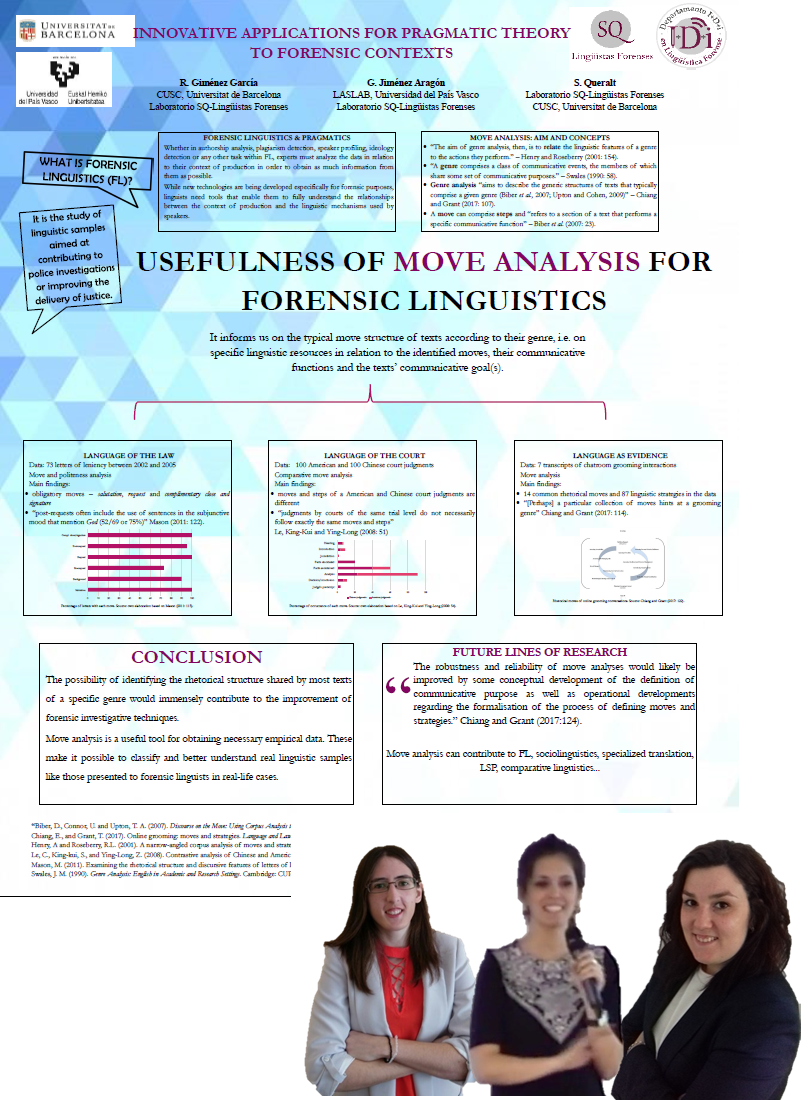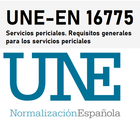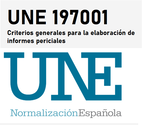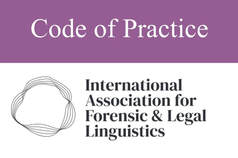|
Las investigadoras Roser Giménez, Garazi Jiménez y Sheila Queralt presentan hoy el poster titulado "Innovative Applications for Pragmatic Theory to Forensic Contexts" en el VIII INTERNATIONAL SYMPOSIUM ON INTERCULTURAL, COGNITIVE AND SOCIAL PRAGMATICS. A continuacióni les dejamos el abstract disponible en el book of abstract del congreso páginas 21-22.
Giménez García, Roser, Garazi Jiménez Aragón and Sheila Queralt “Innovative applications of pragmatic theory to forensic contexts” Forensic linguistics can be described as the application of linguistics to legal contexts. In this sense, forensics linguists analyze an individual’s discourse in a specific social context. Therefore, the use of pragmatic approaches may prove to be of critical importance for linguistic experts. Nevertheless and with the exception of a few isolated cases in the literature, it was not until relatively recently that linguistic theories originated in pragmatics have systematically been applied to forensic text types in order to improve our understanding of suicide notes or chat interactions with pedophilic content, among others. This poster gathers some of the most recent studies which share a pragmatic theoretical framework, move analysis of genre (Swales, 1990). Our aim is to evaluate the results obtained in these studies and, thus, the usefulness and the potential of the application of this framework to forensic contexts. Comparing the specific rhetorical structure of a text and the typical structure of the textual genre it belongs to can be crucial in the forensic [field], since it can provide us with very valuable information about its author and its context (Carmody & Grant, 2016: 19). The articles included in this poster analyze textual productions from other [jurisprudences], which, alongside the scarcity of comparable studies, highlights the opportunity to adapt this kind of investigations to our context. The results of our literature review demonstrate that the application of pragmatic theories to forensic text types like online child grooming (Carmody & Grant, 2016), courtroom judgments (Le, King-kui & Ying-Long, 2008) or letters of leniency (Mason, 2011) can significantly improve our understanding of such texts with new perspectives, which would eventually result in an improvement of the delivery of justice [in Spain]. Specifically, this investigation shows that the study of rhetorical moves can serve as a tool to determine the sequences of a textual typology which can be expected and improve forensic techniques (e.g. identity disguise, falsity detection for suicide notes, the determination of the ideological nature of a political speech). Los comentarios están cerrados.
|
Sobre el blog...Este blog pretende ser una plataforma de difusión sobre el campo de la lingüística forense a nivel nacional e internacional. Enlaces de interés
|
HorarioLun-Vie: 9:30-16:00
|
|

 Canal RSS
Canal RSS


